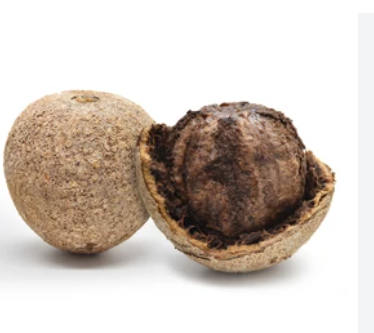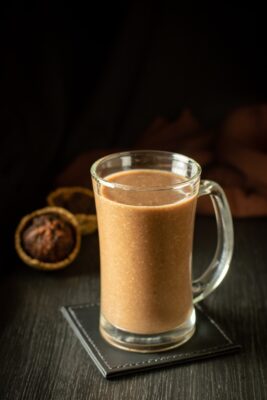Wood Apple in Sri Lanka: A Hidden Gem of Tropical Fruits-by Kalani-eLanka

Sri Lanka, a tropical paradise known for its rich biodiversity and unique agricultural products, is home to a variety of exotic fruits. Among these is the wood apple (Limonia acidissima), a lesser-known but highly valued fruit. This article delves into the cultural, nutritional, and economic significance of wood apple in Sri Lanka.
Wood apple, also known as “divul” in Sinhala, is a hardy tree that thrives in the dry regions of Sri Lanka. The tree can reach up to 9 meters in height and is characterized by its rough, grayish-brown bark and thorny branches. The fruit itself is round, about the size of an apple, with a hard, woody shell that encases a sticky, brown pulp.
The tree is typically grown in home gardens, small orchards, and is also found wild in rural areas. It requires minimal care, making it an ideal crop for farmers in arid regions. The wood apple tree is drought-resistant and can thrive in poor soil conditions, which adds to its appeal as a low-maintenance fruit-bearing tree.
Wood apple is packed with nutrients, making it a valuable addition to the diet. The fruit is rich in vitamins such as vitamin C and vitamin B, as well as minerals like calcium, potassium, and iron. It also contains significant amounts of dietary fiber, which aids in digestion.
The pulp of the wood apple is known for its medicinal properties. It has been used in traditional Ayurvedic medicine to treat various ailments such as digestive disorders, respiratory problems, and even diabetes. The high antioxidant content in wood apple also makes it beneficial for overall health and wellness.
In Sri Lanka, wood apple is consumed in various forms. The most common way to enjoy the fruit is by making “divul kiri,” a refreshing drink made by blending the pulp with coconut milk and jaggery (unrefined cane sugar). This beverage is not only delicious but also provides a cooling effect, making it a popular choice during the hot and humid months.
The pulp can also be used to make chutneys, jams, and jellies, which are often served as accompaniments to savory dishes. In some regions, the fruit is eaten fresh, with a sprinkle of salt and pepper to enhance its tangy flavor.
Wood apple plays a significant role in the local economy of Sri Lanka, particularly in rural areas. The fruit is often sold in local markets, providing a source of income for small-scale farmers. Additionally, the increasing demand for natural and organic products has led to a growing interest in wood apple-based products in both domestic and international markets.
The potential for value-added products such as jams, juices, and health supplements presents an opportunity for further economic development. Small businesses and cooperatives are beginning to explore these avenues, thereby enhancing the livelihoods of those involved in the wood apple industry.
Despite its resilience, the wood apple tree faces threats from deforestation and habitat loss. Efforts are being made to promote the conservation of this valuable species through sustainable agricultural practices and reforestation projects. Educating farmers about the benefits of growing wood apple and integrating it into agroforestry systems can help preserve this important fruit for future generations.
Wood apple is a hidden gem in Sri Lanka’s diverse array of fruits. Its nutritional benefits, culinary versatility, and economic potential make it a valuable crop. As awareness grows and efforts to promote its cultivation and conservation continue, wood apple is poised to play an increasingly important role in the cultural and agricultural landscape of Sri Lanka.








